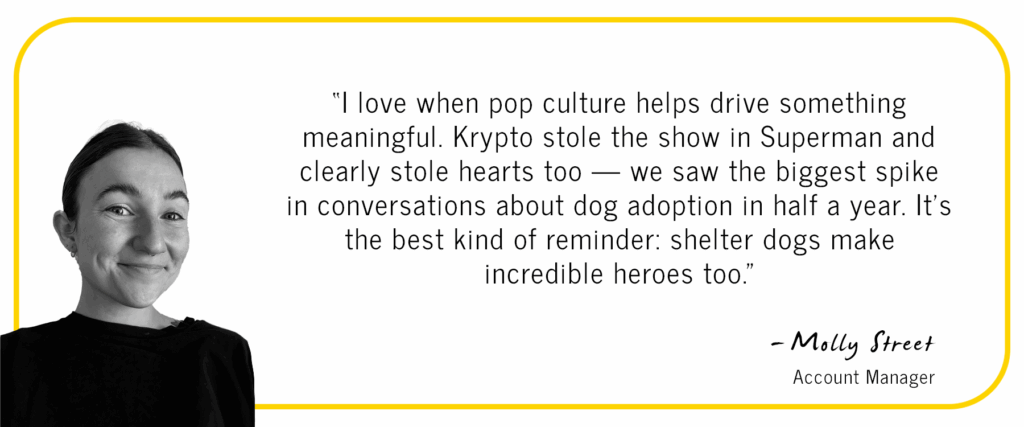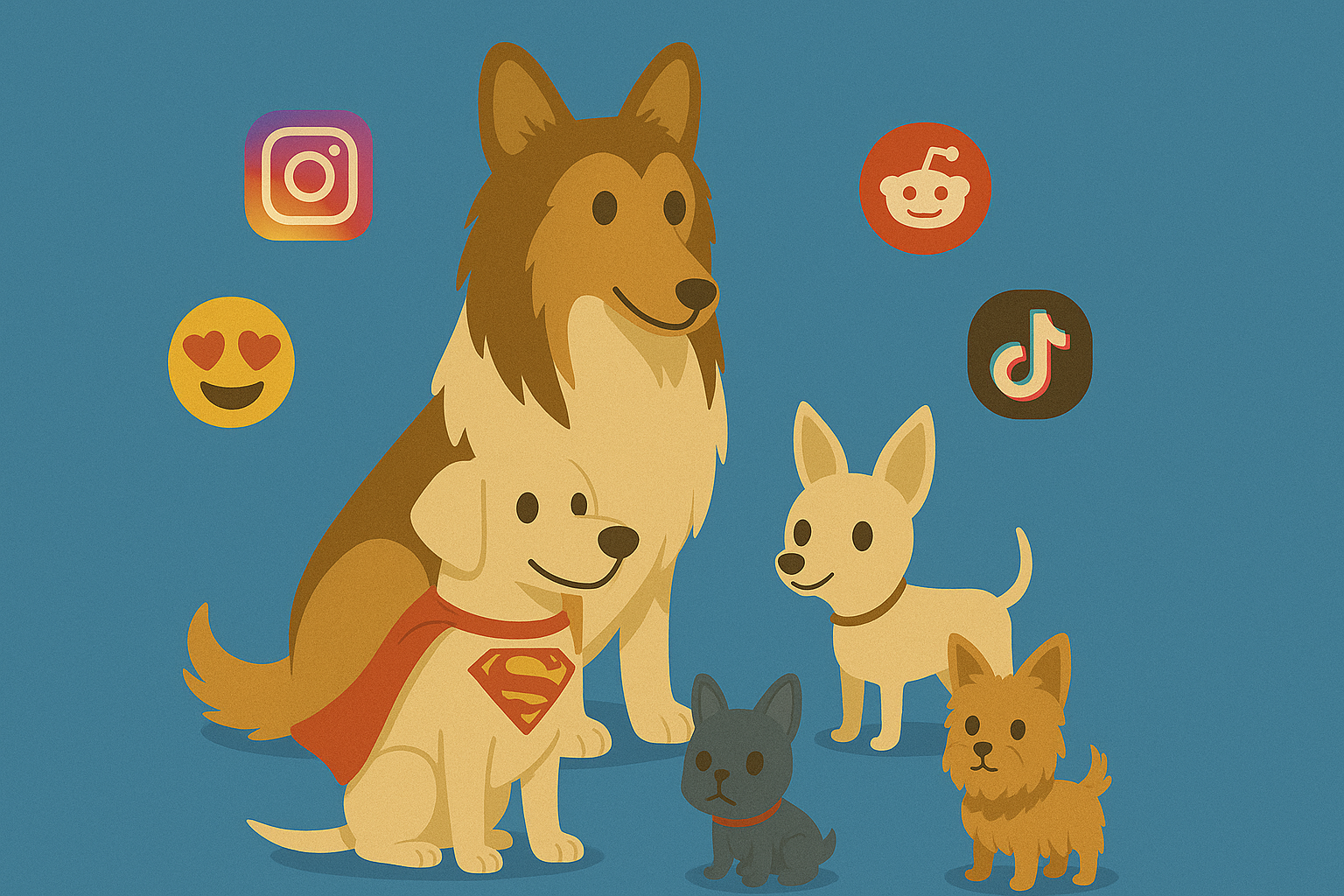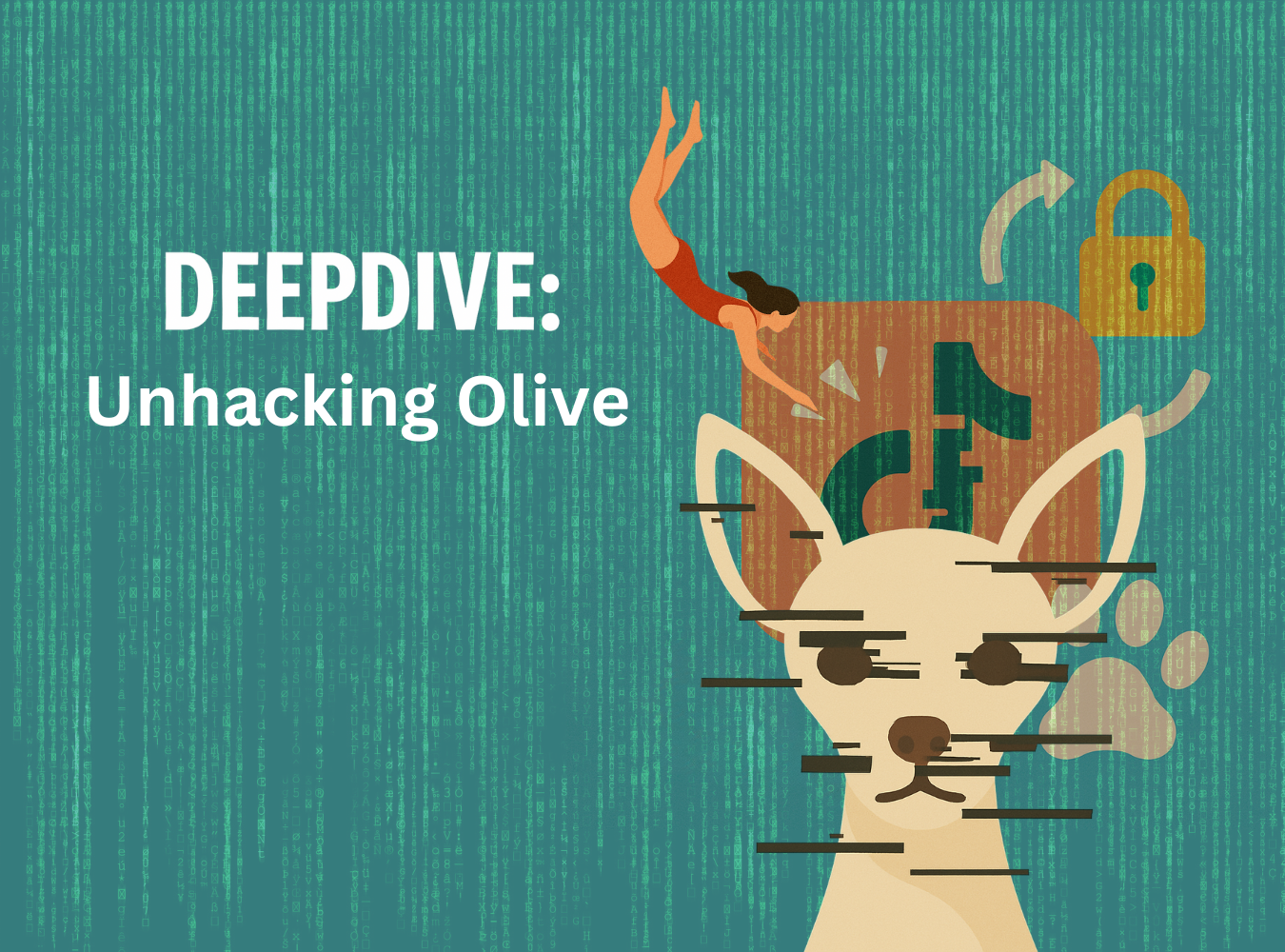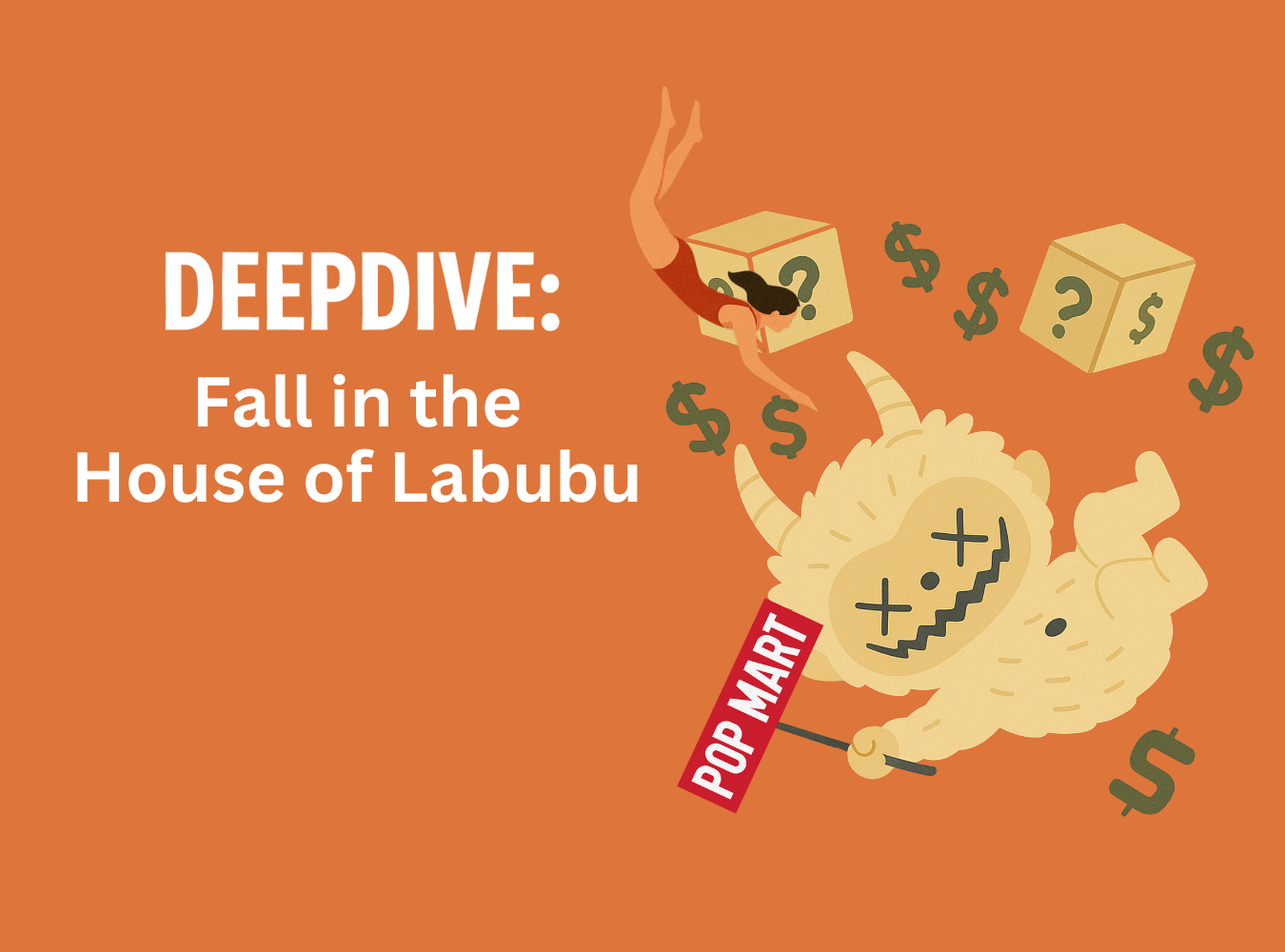Guest post by Molly Street, Account Manager at ListenFirst
Krypto stole hearts in Superman (2025) — and triggered a national spike in dog adoptions. But history warns us: not every on-screen pup leads to a happy ending.
When Superman (2025) hit theaters this July, audiences expected action, nostalgia, and cape-worthy heroics. What they didn’t expect was to leave the theater Googling “adopt a dog near me.” Yet within 48 hours of release, that search term surged over 500%.
The reason? A four-legged supporting character named Krypto — a scruffy, scene-stealing sidekick based on director James Gunn’s own rescue dog, Ozu. In a film full of spectacle, it was Krypto’s grounded, loyal presence that connected most viscerally with viewers. Online, the response was immediate: Twitter conversations about dog adoption reached a six-month high, and animal shelters across the country reported increased inquiries and waived-fee adoptions.
It was a feel-good story. But it wasn’t a new one.
The Pattern Behind the Pup
Krypto is just the latest example in a long history of media-driven pet trends — some inspiring, others cautionary. Across decades, audiences have formed emotional bonds with fictional dogs and rushed to bring home real versions, often without fully understanding what they’re getting into.
Here’s a snapshot of the pattern:
| Film/Show | Breed(s) Impacted | Real-World Impact |
|---|---|---|
| Lassie (1943) | Collies | +40% AKC registrations |
| The Shaggy Dog (1959) | Old English Sheepdogs | 100× spike in demand |
| Rin Tin Tin (1920s) | German Shepherds | Massive surge; WB called them “mortgage lifters” |
| 101 Dalmatians (1996) | Dalmatians | Huge adoption surge → shelter overflow when owners couldn’t handle breed needs |
| Game of Thrones (2010s) | Siberian Huskies | Adoption surge → later spike in surrenders |
| 777 Charlie (2022) | Labradors | Nationwide demand surge → warnings about irresponsible breeding |
| Beverly Hills Chihuahua (2008) | Chihuahuas | Pre-release demand spike → shelter overload; warnings from animal welfare officials |
| Paris Hilton & Tinkerbell (2000s) | Chihuahuas | “Paris Hilton Syndrome” → trend-driven purchases → increased shelter surrenders |
| Superman (2025) | Schnauzer mix (Krypto) | +513% spike in “adopt a dog” searches; 454+ adoptions in first week |
What Makes Superman’s Krypto Different?
Unlike many of its predecessors, Superman offered something subtler — and arguably more responsible. Krypto’s story wasn’t just cute; it was grounded in real life. James Gunn based the character on his own adopted dog, Ozu, and that authenticity gave the story a resonance beyond the screen.
The industry also responded with greater coordination. Best Friends Animal Society partnered with shelters to waive adoption fees, resulting in over 450 confirmed adoptions in the film’s first week. The studio’s decision to support shelter activity — rather than simply amplify the character — helped steer the public toward ethical action.
Still, the underlying mechanics remained familiar. Viewers watched, felt moved, searched, and acted.
The Chihuahua Case Study: A Cautionary Counterpoint
Beverly Hills Chihuahua is a revealing case of how visibility can morph into volatility. Before the 2008 film even hit theaters, LA officials warned it could worsen the city’s existing Chihuahua overpopulation crisis. They were right.
At the time, Chihuahuas were already one of the most abandoned breeds in Southern California. After the film’s release, the trend accelerated — fueled further by the real-world glamorization of the breed via Paris Hilton and her now-iconic purse dog, Tinkerbell.
This fusion of media and celebrity status created what sociologists later dubbed “The Paris Hilton Syndrome”: a wave of impulsive adoptions based on image, not reality. Chihuahuas were treated as fashion statements. When their temperament and care needs didn’t align with the fantasy, shelters absorbed the fallout.
Why These Trends Keep Happening
The behavioral funnel is short and predictable: 1. A lovable on-screen dog builds emotional resonance. 2. Viewers search for that breed or general adoption info. 3. Some take action — not always after researching suitability or needs.
This is where marketers and strategists come in.
What Marketers Should Take From This
Media moments like Krypto’s aren’t just PR wins — they’re behavioral triggers. And they require thoughtful handling from any brand or organization in the orbit of pets, animal welfare, or emotional storytelling.
- Monitor the momentum. Google search and social volume are leading indicators of intent — and great creative hooks for timely content or ad targeting.
- Design for the aftermath. Don’t just ride the emotional wave. Offer practical tools (breed explainers, adoption checklists, post-adoption support) to convert intention into responsible action.
- Plan before the premiere. Big pet-focused releases can be mapped months ahead. Build a toolkit in advance: assets, landing pages, even reactive social templates.
- Lead with story — but finish with structure. Emotional content pulls people in. Clear education keeps them engaged in a sustainable way.

Final Thought
Krypto may be digital, but the impact he made is entirely real — not just in adoption data, but in emotional connection. As with every story-driven surge before him, the outcomes depend on what happens next.
For social strategists and marketers, it’s not just about capturing the cultural moment. It’s about shaping what people do with it.



